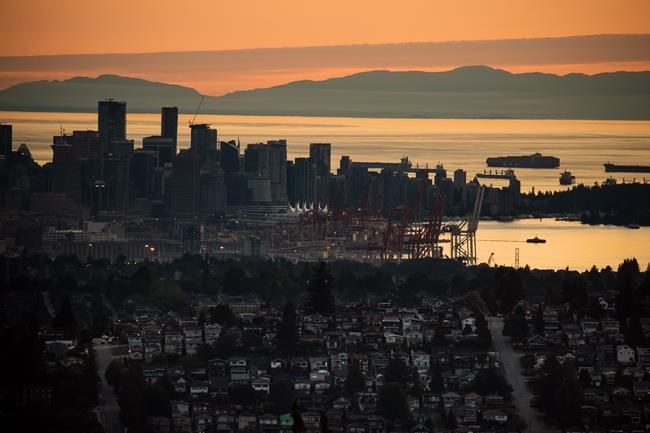VANCOUVER — A First Nations chief says an Indigenous-led bid to host the 2030 Olympics in British Columbia is over after the province declined its support.
"It's an end to the bid," Chief Jen Thomas of the Tsleil-Waututh Nation said in a phone interview Thursday. "But it's a path forward to a new relationship that has to be rebuilt right now.
"We just took big steps backwards on reconciliation with the province and there were a lot of lessons learned. And the province needs to catch up."
Earlier Thursday, B.C.'s minister of tourism, arts and culture said hosting the Games could jeopardize the government's ability to address pressures facing citizens.
"Ultimately, we came to this decision to not support the 2030 bid at this time," Lisa Beare said at a news conference at the B.C. legislature.
"The current bid is cost estimated at $1.2 billion and an additional billion dollars in risk, and when we measured that against our government's priorities we believe we need to focus on people.''
Beare said the government must focus its efforts and resources on health care, public safety and investing in affordability initiatives.
The group leading the bid has estimated that holding the 2030 Olympics in Vancouver, Whistler and Sun Peaks would cost between $3.5 and $4 billion, with funding coming from a mix of public and private sources.
Hearing B.C.'s decision was disappointing, Thomas said.
"We're hurt," she said. "We feel that we're not respected. It's very disheartening to learn that this decision was made without us."
The province didn't give organizers an opportunity to answer a lot of questions, Thomas added.
"In regards to the budget, we did a lot of background into the budget and where the money was coming from. And the province, in their mind, had to commit more dollars than we have in our mind," she said. "So there should have been more discussion all around on this."
The Lil'wat, Musqueam, Squamish and Tsleil-Waututh Nations announced on Feb. 1 that they had signed an agreement with the City of Vancouver, the Resort Municipality of Whistler, the Canadian Olympic Committee and the Canadian Paralympic Committee to explore a bid.
It was the first Olympic bid by an Indigenous-led group and the First Nations involved have said it represents a chance for reconciliation.
Seeing the bid scuttled will hurt relationships between First Nations and the province, Thomas said.
"It has set us 10 steps backwards," she said. "There's gonna be a lot of work that needs to be done, a lot of relationship building that's going to need be done because we were disrespected. So there's gonna have to be a lot of work for true reconciliation. It's a journey together and right now, we're gonna have to build that trust up."
Beare noted Thursday that B.C. has already committed to holding the 2025 Invictus Games and being a host city for the 2026 World Cup.
Lessons learned during planning for the 2030 Olympic bid should be applied to those events, said Councillor Dennis Thomas of the Tsleil-Waututh Nation.
"We hope that the work that we have done to date with our Indigenous-led values and programming and concepts, hopefully that can be a transferable opportunity for the province and the federal government to make sure that those two confirmed (events) have the same vision that we had for 2030," he said.
The City of Vancouver said it "understands and acknowledges the disappointment expressed'' at the provincial government's announcement.
"The Truth and Reconciliation Calls to Action around major event hosting will form an important part of our ongoing partnership for major events to be hosted in Vancouver, based on community, respect and inclusivity,'' the city said in a statement.
The Resort Municipality of Whistler said it was disappointed the bid process ended without "fulsome, all-party analysis.''
"We have very much enjoyed working with the Lil'wat, Squamish, Musqueam andTsleil-Waututh on this inspiring effort,'' the municipality said in a statement. "We remain committed to constructive dialogue and mutually beneficial partnerships going forward.''
The Canadian Olympic Committee issued a statement Thursday saying it was taking time to process the province's decision and plans to respond on Friday.
"The Canadian Olympic Committee and Canadian Paralympic Committee feasibility team, working under the leadership of the Lil'wat, Musqueam, Squamish and Tsleil-Waututh Nations, believes in the strengths of this Indigenous-led process to bring the Olympic and Paralympic Winter Games back to the region,'' it said.
— With files from Dirk Meissner in Victoria.
This report by The Canadian Press was first published Oct. 27, 2022
Gemma Karstens-Smith, The Canadian Press



